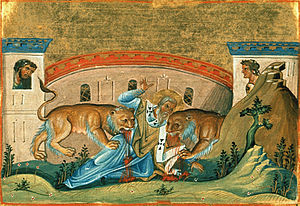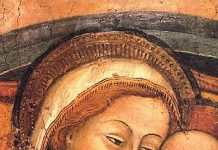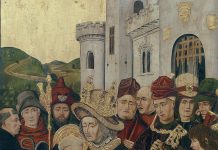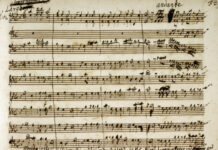We celebrate today the feast of Saint Ignatius of Antioch (35-107 A.D.), one of the earliest Fathers of the Church, bishop of the same city as Saint Peter, the third in succession after the first Pope, before Peter himself, inspired by God, moved on to Rome, baptizing, if you will, that centre of pagan worship by his brief pontificate and his martyrdom, as our Lord predicted years before on the shore of Galilee, making Rome until the end of time, the ‘eternal city’.
As you can glean from the dates above, Ignatius was in the twilight of his years when he was dragged off to Rome to suffer his own martyrdom. As the saying goes, he was ‘fed to the lions’
On Ignatius’ spiritual journey to this rather unenviable fate, the saintly bishop, joyful and exuberant the whole way, wrote seven epistles, offering invaluable insights into the very earliest days of the Church, and it was a ‘Catholic’ church, a phrase first used by Ignatius, with bishops, priests, the Mass, the reality of the Holy Eucharist, the sacraments, laity. As Newman finally admitted before his own conversion, as he tried to find some ‘via media’ Anglicanism in early ecclesiastical history, ‘to delve into history is to cease to be a Protestant’.
But these seven precious letters in their poetic and passionate Greek prose also offer a window into the noble soul of Ignatius, profoundly Catholic, Christian and courageous, desirous to suffer for Christ, and begging his flock to do nothing to detain this gift from God, a crown to a life well and fully lived.
As Ignatius put it in his letter to the Roman Christians:
I am writing to all the churches to let it be known that I will gladly die for God if only you do not stand in my way. I plead with you: show me no untimely kindness. Let me be food for the wild beasts, for they are my way to God. I am God’s wheat and shall be ground by their teeth so that I may become Christ’s pure bread. Pray to Christ for me that the animals will be the means of making me a sacrificial victim for God.
What more need be said? Except perhaps, when you have time, to peruse his epistles. You won’t be disappointed, and may even, just a tinge, long for a small share of his same spirit.
Saint Ignatius, ora pro nobis!












